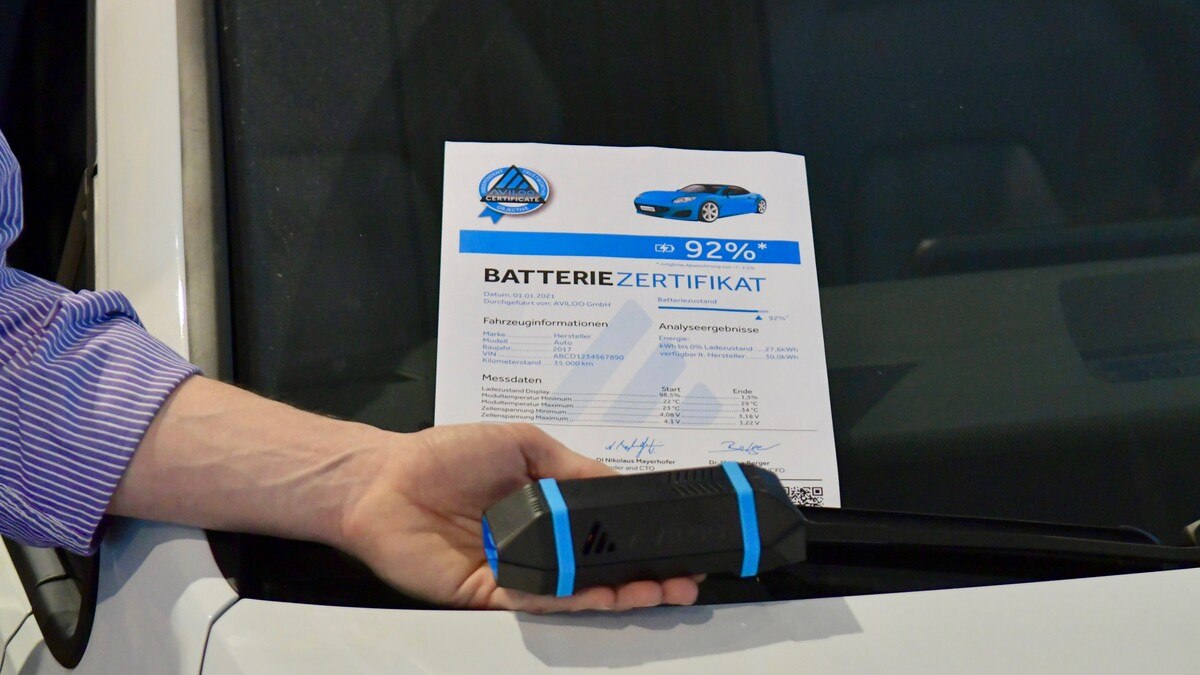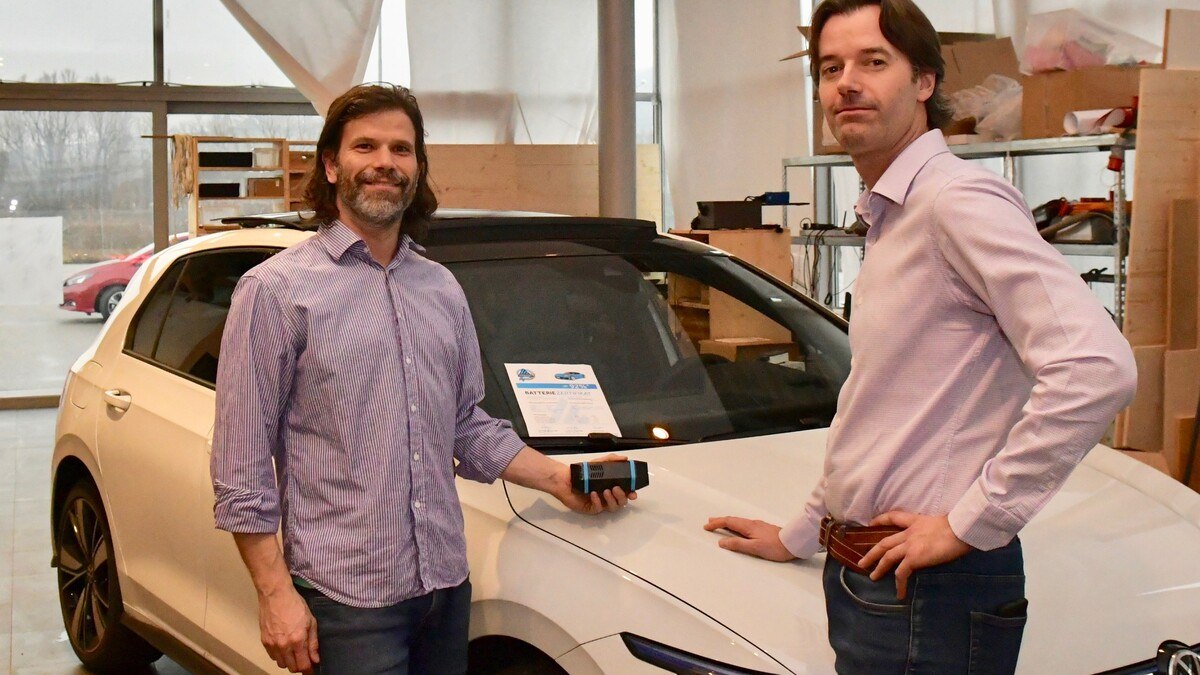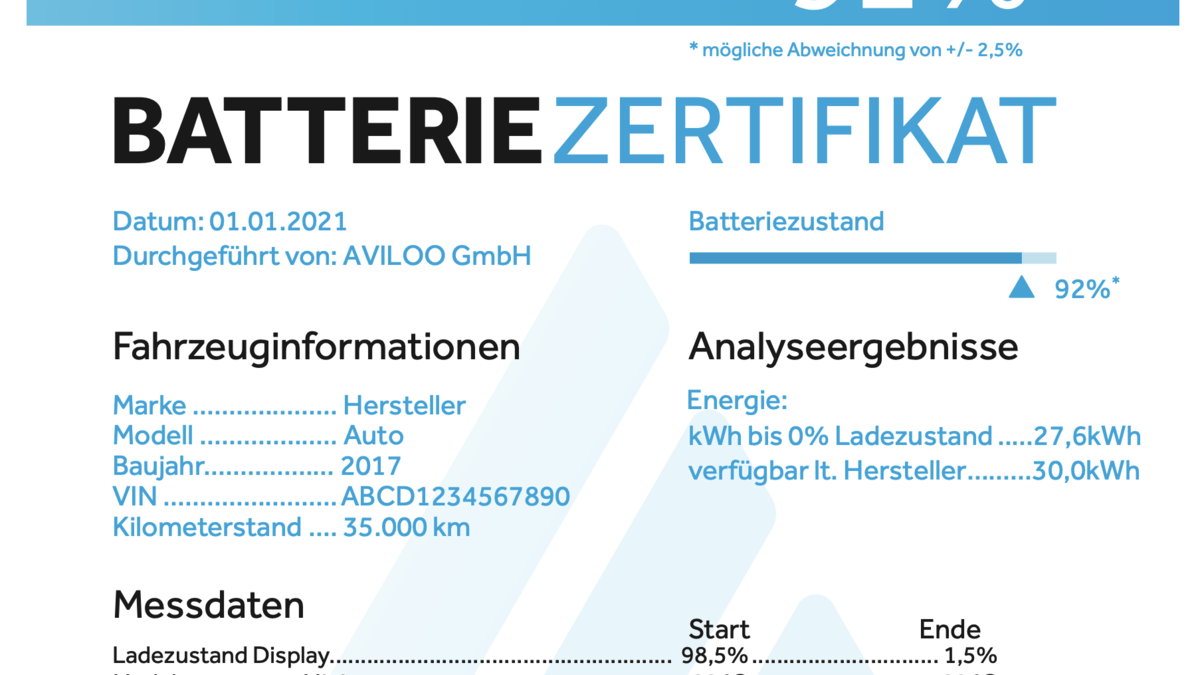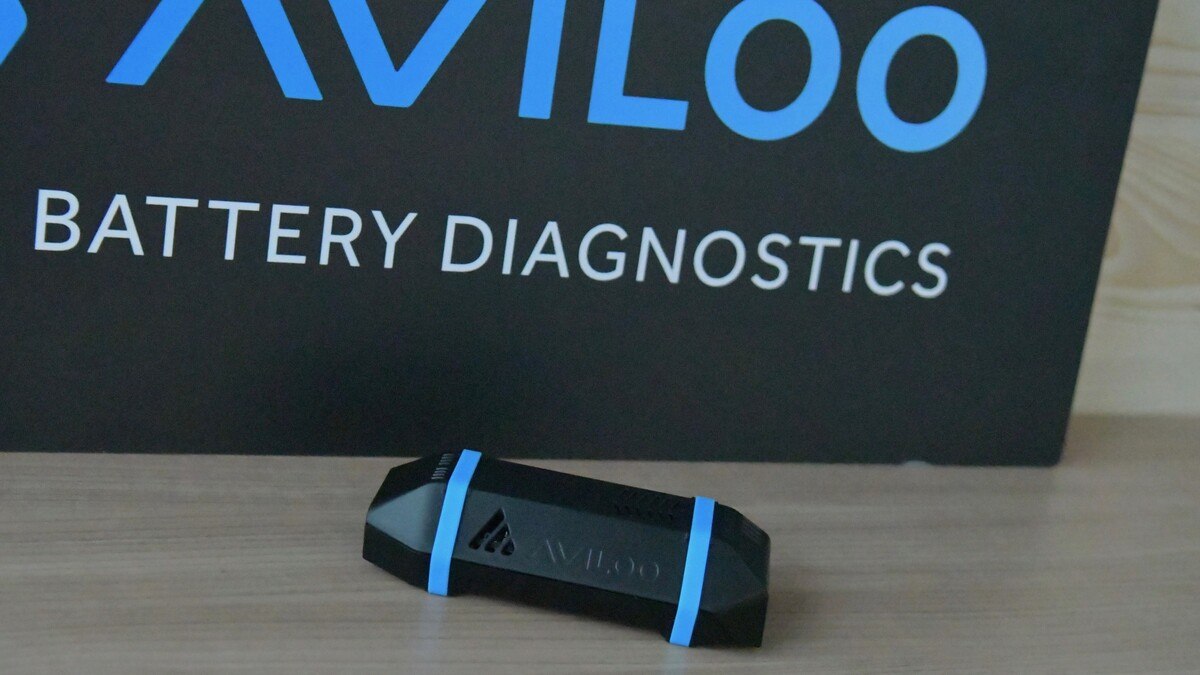The clinical thermometer for electric cars
An Austrian start-up could massively facilitate the trade in used electric cars. The basic idea is very simple. And still unique. A local look from our Diary of Change series.

The clinical thermometer for electric cars
Elon Musk changed the automotive world forever. His electric car company Tesla was initially ridiculed, but today Tesla is the company most valuable car brand in the world. The electric car boom probably would not have happened without Elon Musk and Tesla. Strict, EU-wide emissions requirements and political incentives are helping electric vehicles become increasingly popular. And more and more manufacturers are presenting partially or fully electric models. This change is happening and will continue for a few more years. This also has a dramatic impact on the vehicle trade.
“I won’t take it back”
The market for used electric cars is still manageable - but it is constantly increasing. There are several sticking points with used electric vehicles. On the one hand, they are still significantly more expensive as new cars than comparable combustion models. However, they are heavily subsidized, making them cheaper for consumers. At the same time, the subsidies have a dramatic impact on residual values - they sometimes plummet. This means that the majority of independent automobile dealers openly say: "An electric car? I won't trade it in. I won't buy it." Why? New technologies require new approaches and new assessments. What used to be the mileage of the engine and the year of manufacture to roughly quantify the value of the vehicle is now the condition of the battery in electric cars. And this – similar to the condition of an internal combustion engine – could only be imagined or estimated. However, don't know. Until now. And that's where the start-up Aviloo, based in Wiener Neudorf, comes into play. The two founders have developed a process that precisely defines the battery status. This could permanently change the trade in electric cars.
The golden value
Behind Aviloo are the founders Wolfgang Berger and Nikolaus Mayerhofer. Two childhood friends, two technicians, two automotive managers. Wolfgang Berger worked for a well-known automotive supplier for many years, and his friend Nikolaus Mayerhofer worked in engine quality assurance for a manufacturer. You know the automotive world – from both sides. And then one came BMW i3. "Wolfgang constantly offered me his i3 to test drive. At some point I agreed and drove it. Casual car," says Mayerhofer. But Wolfgang had a problem: "If you buy a used electric car today, you don't know how good the condition of the battery is. If the battery is already closed, you're practically buying a total economic loss." The Aviloo company was born. The idea: the exact determination of the battery status. The business model: a value, the battery capacity in percent, printed on a certificate.
Rocket science? No!
In order to be able to determine the battery status exactly, you have to plug in the Aviloo box via the OBD interface, drive the car fully charged with a remaining range of a few kilometers, and you're done. The Aviloo box sends the vehicle's battery data to the Aviloo servers. For a Tesla model, that's around one million data points per hour. Therefore, server computing power is needed to process the gigantic stream of data. In the end, the exact battery capacity is calculated from all this data. The algorithm behind it is the company capital. The industry always says that battery management in electric cars is the greatest art and is therefore complex and unique. "Well, that's not true," smiles Nikolaus Mayerhofer and puts it into perspective: "Battery management isn't that complex. Compared to a transmission motor unit, battery management isn't rocket science."
Highly interesting for car dealers
After the test drive, the Aviloo servers spit out the exact battery capacity value, for example 92.8 percent of the manufacturer's factory net specification. “This means that the value of an electric car can be calculated and estimated much more clearly than ever before,” says Wolfgang Berger. This is good news for car dealers. Because: “We can certify every electric car independently and accurately across manufacturers,” explains Berger. The aim is for the Aviloo certificate to become the new industry standard. Car dealers can protect themselves in several ways with certification:
On the one hand, this allows the battery condition to be calculated more precisely than, for example, the wear and tear of an internal combustion engine. In addition to the pure remaining capacity, cell errors can also be evaluated, which can immediately warn of a purchase or sale. One or more faulty cells can cause extreme damage to batteries and even lead to total loss. Since the measuring process is independent of the manufacturer, the remaining capacities are also comparable. "Until now, the car dealer didn't know exactly what condition the electric car high-voltage battery was in. He could only determine this based on its age and mileage. Usage behavior plays a much larger role here," says Mayerhofer. For example, how often the car was refueled using quick charging, what the battery temperature was or whether the electric car was often left at the charging station overnight. “The health status of two vehicles with the same mileage can vary by up to 20 percent, depending on user behavior,” explains Nikolaus Mayerhofer. Cell damage could not be verified by car dealers at all.
Easy transaction
“We focus on both corporate and private customers,” explains Wolfgang Berger. The process is quite simple: you order an Aviloo box on the Aviloo website, follow the detailed instructions, do the measurement drive and return the box. In addition to the battery capacity, private users can also determine the real remaining range more precisely and, in the event of a sale, also officially certify the battery health. With the certificate, dealers and workshops have valid purchase and sales arguments and certainty about what they are dealing with.
This means that the e-car risk has shrunk massively, especially for independent dealers. Aviloo will also offer its own business tariffs or subscription models for professionals. For end customers, a certificate should cost around 180 euros (gross). According to the founders, this is below the manufacturer's battery capacity certificates, which, however, are neither as precise nor as meaningful. More on www.aviloo.com
Our diary of change serves as a platform for car models with alternative drives, for new mobility solutions and business areas as well as mobility reports from everyday life to find out how mobility will develop from 2021 onwards.
With kind support from Total Austria

 Suche
Suche
 Mein Konto
Mein Konto



